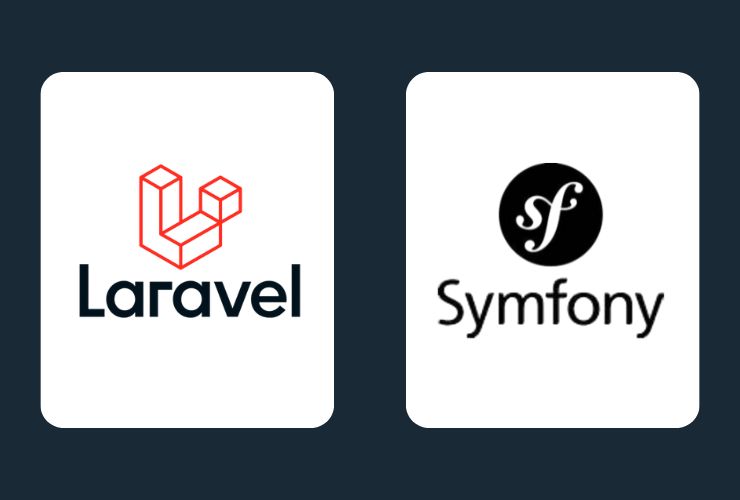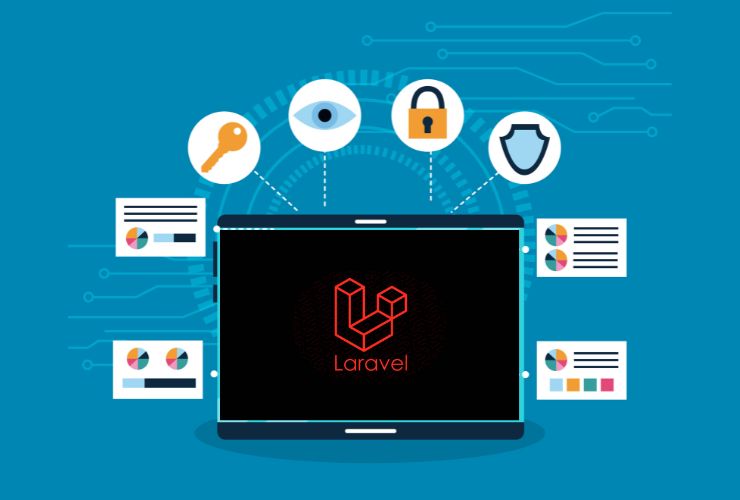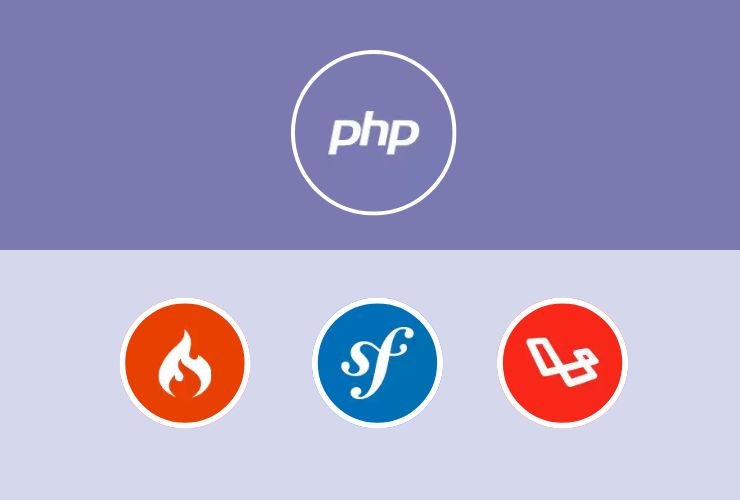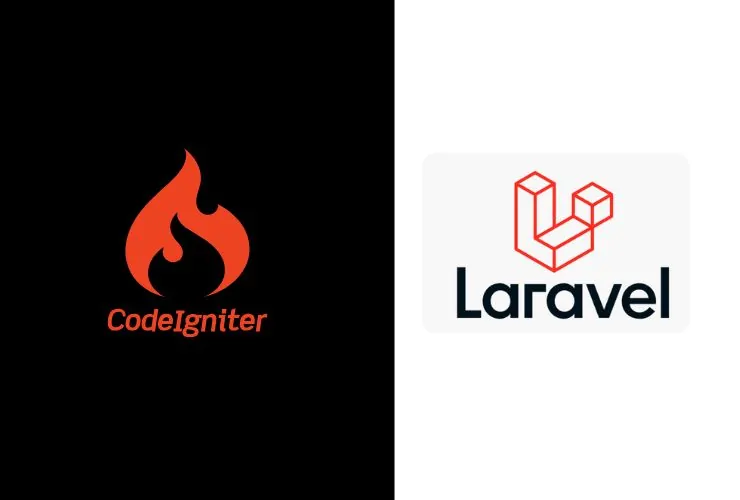Choosing the right PHP framework is crucial for building scalable, maintainable, and high-performance web applications. Two of the most popular frameworks in the PHP ecosystem are Laravel and Symfony. While both offer robust features and follow the MVC architecture, they cater to different use cases and development preferences. In this blog, we’ll compare Laravel vs Symfony in terms of performance, flexibility, ease of use, ecosystem, and when to choose one over the other.
Overview of Laravel and Symfony
What is Laravel?
Laravel is an open-source PHP framework that is thought for simplicity, elegance, and ease of use. It has built-in features such as authentication, routing, templating, and database migrations that make any development much faster and more efficient. Laravel is also admired for its developer-friendly syntax, intense community support, and rapid application development capabilities.
Important Features of Laravel:
- Eloquent ORM Database Interactions simplify with a very expressive syntax.
- Blade Templating Engine provides lightweight and powerful templating for frontend views.
- Authentication and Authorization are built-in for login, roles, and permissions management.
- Queues and Task Scheduling improve application performance with background job processing.
- API Development support is provided with authentication mechanisms.
What is Symfony?
Symfony is a high-performance PHP framework, said to be designed for complex enterprise applications. It has a modular structure, which is the reason why it’s adopted extensively in big projects that emphasize flexibility, scalability, and customization. Components of Symfony are also used in other PHP projects, including Laravel itself.
Main Features
- Bundles and components offer a lot of modularity with a high level of reusability.
- The Twig Templating Engine provides a secure, fast, flexible template engine.
- Doctrine ORM provides powerful database management with enhanced features.
- Event Dispatcher and Dependency Injection allow for better control over the structure of the application.
- Scalability and Performance make it ideal for high-traffic applications.
Laravel vs Symfony: Key Comparisons
Ease of Use and Learning Curve
Laravel is designed for the beginner and intermediate developer, offering an intuitive syntax and many built-in functionalities. The learning curve is relatively low, and the documentation is vast. Symfony, on the other hand, has a steeper learning curve due to its strict architecture, modularity, and extensive configuration requirements. It is more suitable for experienced developers who need complete control over their application structure.
LARAVEL IS A BETTER Choice for both beginners and rapid development.
Performance and Speed
While Laravel excels in the speed of most applications, its numerous built-in features come at a performance cost. Optimizing performance may mean adding configurations in the form of caching, database indexing, and queue management. Symfony is recognized for its much better performance for large-scale applications. It is better suited to projects with very high traffic as it provides very fine-grained control over all things related to caching, database queries, and routing.
It’s better for big applications to achieve optimized performance by Symfony.
Flexibility and Customization
Laravel has all the built-in solutions for web applications, reducing the need for third-party libraries. However, it can also limit deep customization options. This modular architecture allows developers to only use the needed components, so Symfony is more customizable for enterprise applications.
For high customization and enterprise applications, Symfony is a better choice.
Database Management
Laravel uses Eloquent ORM, which is simple and efficient for database operations. It provides an active record pattern that makes queries readable and developer-friendly. Symfony makes use of Doctrine ORM, following the Data Mapper pattern, to provide more flexibility and control in database management.
Laravel will be ideal when simplicity and ease of use are required. For complex and large-scale database management, Symfony would be the ideal choice.
Ecosystem and Community Support
Laravel has a massive global community, a large collection of third-party packages, and tools like Laravel Forge, Vapor, and Nova to simplify development and deployment. Symfony has strong enterprise adoption, with long-term support (LTS) releases and a professional ecosystem dedicated to it. Many other PHP frameworks use Symfony components.
Laravel has a stronger community and ecosystem for small to mid-sized projects.
Use Cases and When to Choose
| Feature | Laravel | Symfony |
|---|---|---|
| Best for | Rapid web development, startups, MVPs, small-to-medium projects | Large-scale, enterprise applications with complex architectures |
| Performance | Good but may need optimization | Highly optimized for scalability |
| Learning Curve | Easier for beginners | Steeper learning curve |
| Customization | Limited customization due to built-in solutions | Highly flexible and modular |
| Ecosystem | Strong community, vast number of packages | Enterprise adoption, LTS releases |
When to Use Laravel?
- Develop an application urgently, with few configuration settings
- For a fresh programmer or somebody in search for developer-friendly code.
- If You’re looking at the ready-built authentication system with support for an API and an Engine for Template.
When to Use Symfony?
- Use Symfony when Your Project is Some kind of Medium business application/ small blog application, or Online e-commerce, website.
- Need deep customization, modularity, and high scalability.
- With a custom-built project, you wish to use Symfony’s standalone components.
- Advanced security features along with DB management and caching mechanisms need to be used.
Conclusion
Both Laravel and Symfony are very strong PHP frameworks, but for the right choice, it is up to the requirement of your project. Specially for fast development, ease of use, or mid-sized applications, Laravel suits best. And on scalability and customization for large and complex enterprise applications, Symfony suits properly. If you require a framework that is fast, simple, and functional, Laravel may be perfect for you. But for a high-performance scalable enterprise solution, the best option is Symfony.
- Use Laravel if you need a quick development using an easy to learn framework.
- Use Symfony when you need flexibility, customization, and scalability of an enterprise-level solution.














